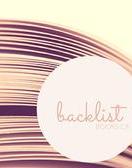
The world of books is never boring. Every Thursday (well, almost every Thursday) I'll discuss a different topic related to books, often inspired by or in response to what's going on in the online book community (or something I've seen another blogger talk about). I call this Book Thoughts on Thursday. Feel free to weigh in with your own thoughts in the comments, or even write your own post on the topic and share the link with me!
***
This post was inspired by a thought-provoking review I read over on Trish's blog, eclectic/eccentric, of a book called Brief Encounters with Che Guevara by Ben Fountain (best known for his book Billy Lynn's Long Halftime Walk). In her review, she discussed how the content matter of the book challenged her - both in terms of her emotional response, and her knowledge of both historic and current events in other parts of the world. This led to an intelligent discussion of the impact this kind of reading had on her, and its results - both positive and negative. I started writing a comment to respond and realized that there was far too much I wanted to say. The topic of "challenging" reading is one that bears much thought - and commentary.
Reading is supposed to be enjoyable. It's supposed to be a way for you to lose yourself in another set of experiences - even another world. But unlike other forms of entertainment, it's also intended to teach the reader something. Sometimes practical information, sometimes historical, other times what it's like to live inside someone else's skin.
Another function of books, like all great art, is to reflect the world in which we live - all aspects of it. Our world can be an incredibly beautiful and inspiring place. It can also be a terrifying one. I've always been a big believer that it's important to understand the bad as well as the good - not only because awareness of the bad makes our happy moments sweeter, but because it can inspire us to do our part to make the world a little bit brighter. To willfully see only the palatable aspects of reality is to live in a fantasy world.
Aside from that, understanding what it's like to live someone else's reality through reading teaches us compassion and helps us make an effort to connect with others and understand them rather than judge them.
It's all too easy to ignore things that are difficult to face. Whether it's human rights atrocities that happened before we were born or that are currently taking place in other parts of the world, what it's like to be of a different sexual orientation, ethnic background or gender than our own or even a more pleasant fictional reality that is more pleasant than our own, books transport us. They allow us unequaled access to experiences outside our own realm.
Does reading a book with difficult content cause uncomfortable emotional responses? Yes. Are there books I've been unable to finish? Yes. But I'd be hard-pressed to point out a book I regret trying to read because it was uncomfortable or difficult for me. Even if I wasn't able to finish a particular book it still taught me something - it taught me where my own limits are, and allowed me to explore the emotional response it triggered.
Looking back over my own reading history, it is the books that shocked, challenged or upset me that have had the biggest impact on my life.There have been times that I finished a particularly difficult book and was so overcome by my helplessness to change anything, so filled with disgust at the deep well of evil in human nature, that I asked myself the same question that Trisha asked herself: Should I read books like this when I can't fix anything?
In the end, I inevitably answer my own question in the affirmative. Who knows, maybe someday what knowledge I've gained from reading will allow me to help someone, or even just to connect to them. Maybe amassing such knowledge makes me a better person, even if only in small ways. But at the very least, even if I never effect any tangible change, I can bear witness. I can take in the stories, regardless of how difficult and uncomfortable it may be for me, because it is what the victims of unfortunate circumstance or injustice deserve. Because it may be the least I can do - but it is something.
I think, for me, it's all about balance. I can't read one emotionally draining book after another. I need to allow myself time to digest and process. But I'm going to keep challenging myself, because in the end, I never regret it.
Over to you guys - do you ever experience emotional overload after reading a particularly difficult book? Do you avoid books that you know will upset you? Do you think there's a benefit in reading about issues you can't do anything to fix? I'd love to hear your thoughts in the comments!

